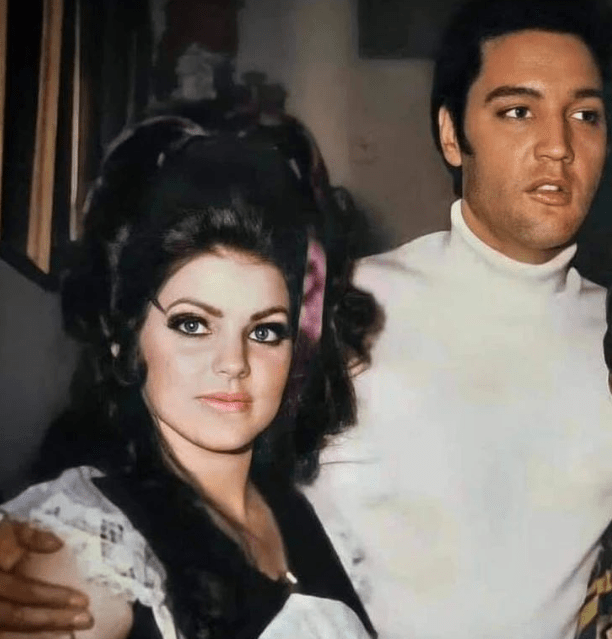Elvis Weight Gain: The Untold Story Behind The King's Transformation
There’s a lot more to Elvis Presley than just the iconic voice and those legendary dance moves. The King of Rock and Roll has always been a symbol of charisma and talent, but one aspect that often gets overlooked is his weight gain in later years. Many fans are curious about Elvis weight gain, and today we’re diving deep into this topic to uncover the truth behind the man, the myth, and the music.
Elvis Presley was more than just a singer; he was a cultural phenomenon. His influence on music, fashion, and pop culture is undeniable. But like many public figures, Elvis faced his share of personal struggles, and his weight gain became a topic of interest for both fans and critics. So, what led to this transformation, and how did it affect his career? Let’s find out.
Before we dive into the nitty-gritty of Elvis weight gain, it’s important to understand the context. Elvis wasn’t just another celebrity; he was a global icon. His journey from a humble upbringing in Tupelo, Mississippi, to becoming the King of Rock and Roll is a story of resilience and hard work. But behind the glitz and glamour, there were challenges that shaped his life in unexpected ways.
Read also:Tay Keith Net Worth The Beatmaker Behind The Hits
Elvis Presley: A Biographical Overview
Early Life and Rise to Fame
Elvis Aaron Presley was born on January 8, 1935, in Tupelo, Mississippi. From a young age, he showed a passion for music, often singing in church with his family. His big break came in 1954 when he recorded "That’s All Right" at Sun Studio in Memphis. The rest, as they say, is history. Elvis became a household name, captivating audiences with his unique sound and electrifying performances.
Biographical Data
Here’s a quick look at Elvis’s key biographical details:
| Full Name | Elvis Aaron Presley |
|---|---|
| Date of Birth | January 8, 1935 |
| Place of Birth | Tupelo, Mississippi |
| Occupation | Singer, Actor |
| Years Active | 1953–1977 |
Elvis Weight Gain: The Beginning
Now let’s talk about the elephant in the room—or should I say, the weight on Elvis’s shoulders. In the early years of his career, Elvis was known for his slim physique and energetic performances. Fans adored his swiveling hips and confident stage presence. But as time went on, things began to change.
Factors Contributing to Weight Gain
Several factors played a role in Elvis’s weight gain, including:
- Stress from fame and constant touring
- Unhealthy eating habits due to long hours on the road
- Medication use, which affected his metabolism
- Personal struggles and emotional challenges
It wasn’t just about the numbers on the scale; it was about the circumstances that led to this transformation.
Elvis Weight Gain: The Impact on His Career
Elvis’s weight gain became noticeable in the 1970s, a period marked by both triumphs and challenges. While he continued to perform and record music, his appearance drew attention from the media and fans alike. Some questioned whether this change would affect his legacy, but Elvis remained a beloved figure despite it all.
Read also:Rotating Sandwiches The Ultimate Guide To Spinning Your Way To Flavor Heaven
How Did Fans React?
Fans were divided in their opinions. Some saw Elvis’s weight gain as a natural part of aging, while others were concerned about his health. Regardless, his music remained timeless, and his performances continued to draw massive crowds.
Elvis Weight Gain: The Role of Diet and Lifestyle
Elvis’s lifestyle during his peak years played a significant role in his weight gain. Let’s break it down:
Unhealthy Eating Habits
Elvis had a penchant for rich, indulgent foods, which became a staple during his tours. Think fried chicken, peanut butter and banana sandwiches (affectionately known as the "Elvis sandwich"), and other comfort foods. While these treats may have been comforting in the moment, they took a toll on his health over time.
Medication and Its Effects
Elvis’s use of prescription medications also contributed to his weight gain. These medications often had side effects that affected his appetite and metabolism, making it harder for him to maintain a healthy weight.
Elvis Weight Gain: The Emotional Component
It’s important to note that Elvis’s weight gain wasn’t just a physical issue; it was also an emotional one. The pressures of fame, the loss of loved ones, and personal struggles all played a role in his transformation. For Elvis, food became a source of comfort during difficult times.
Dealing with Pressure
Elvis faced immense pressure to maintain his image as the King of Rock and Roll. But behind the scenes, he was dealing with personal demons that many fans never saw. This emotional toll likely contributed to his weight gain and other health issues.
Elvis Weight Gain: The Media’s Perspective
The media had a field day with Elvis’s weight gain, often focusing on the negative aspects rather than the bigger picture. While some articles were sympathetic, others were critical, questioning whether Elvis was still the same icon fans remembered.
How the Media Influenced Public Perception
The media’s portrayal of Elvis’s weight gain affected how the public viewed him. Some fans felt betrayed by the coverage, while others saw it as an opportunity to humanize the King. Despite the criticism, Elvis remained a beloved figure in the hearts of many.
Elvis Weight Gain: The Legacy
Elvis’s weight gain is just one chapter in the larger story of his life and career. While it may have been a challenging period, it doesn’t define his legacy. Elvis’s contributions to music and culture continue to inspire new generations, proving that his impact extends far beyond his physical appearance.
Lessons from Elvis’s Journey
Elvis’s story serves as a reminder that even the most iconic figures face challenges. His journey teaches us the importance of self-care, emotional well-being, and resilience in the face of adversity.
Elvis Weight Gain: The Final Years
In the final years of his life, Elvis continued to perform and record music, despite his health challenges. His weight gain was just one of many factors that contributed to his declining health, but it didn’t diminish his passion for music or his connection with fans.
Elvis’s Legacy Lives On
Even today, Elvis remains a cultural icon. His music continues to resonate with fans around the world, and his story serves as a testament to the power of perseverance and creativity.
Conclusion: What We Can Learn from Elvis Weight Gain
Elvis weight gain is more than just a physical transformation; it’s a reflection of the challenges faced by a global icon. Through his journey, we learn about the pressures of fame, the importance of self-care, and the resilience required to overcome adversity. Elvis’s legacy is not defined by his weight gain but by his incredible contributions to music and culture.
So, what can we take away from this story? First, it’s important to recognize that even the greatest icons face personal struggles. Second, we should focus on the positive aspects of their legacy rather than the negative. Finally, let’s celebrate the life and music of Elvis Presley, a true legend who continues to inspire us all.
What are your thoughts on Elvis weight gain? Share your comments below, and don’t forget to check out our other articles for more fascinating stories about music and culture!
Table of Contents
- Elvis Presley: A Biographical Overview
- Early Life and Rise to Fame
- Biographical Data
- Elvis Weight Gain: The Beginning
- Factors Contributing to Weight Gain
- Elvis Weight Gain: The Impact on His Career
- How Did Fans React?
- Elvis Weight Gain: The Role of Diet and Lifestyle
- Unhealthy Eating Habits
- Medication and Its Effects
- Elvis Weight Gain: The Emotional Component
- Elvis Weight Gain: The Media’s Perspective
- Elvis Weight Gain: The Legacy
- Elvis Weight Gain: The Final Years
- Conclusion: What We Can Learn from Elvis Weight Gain



